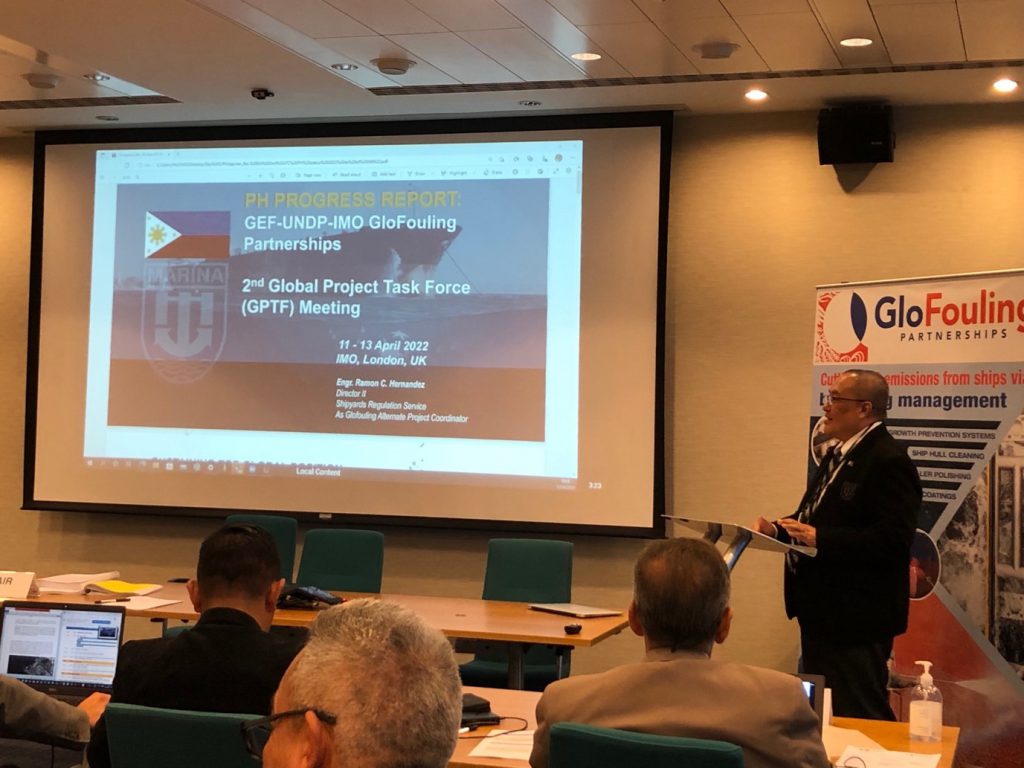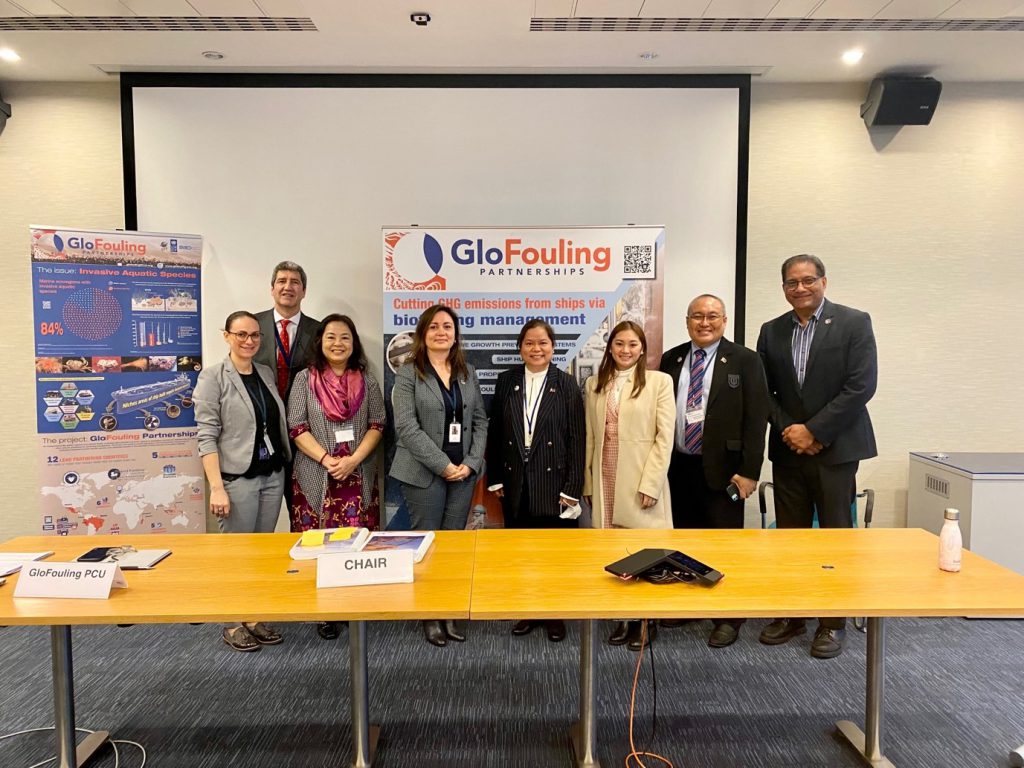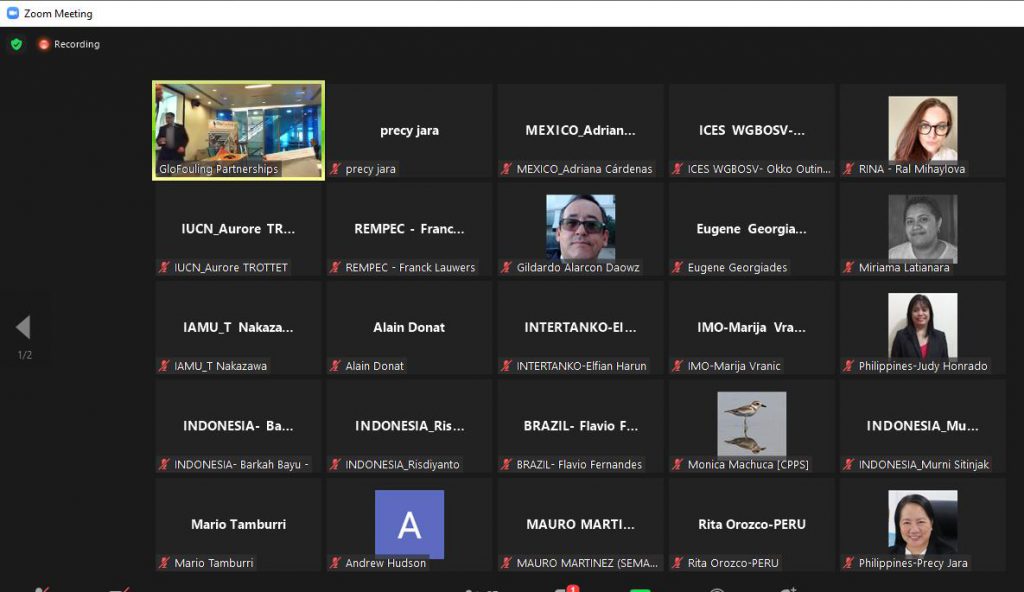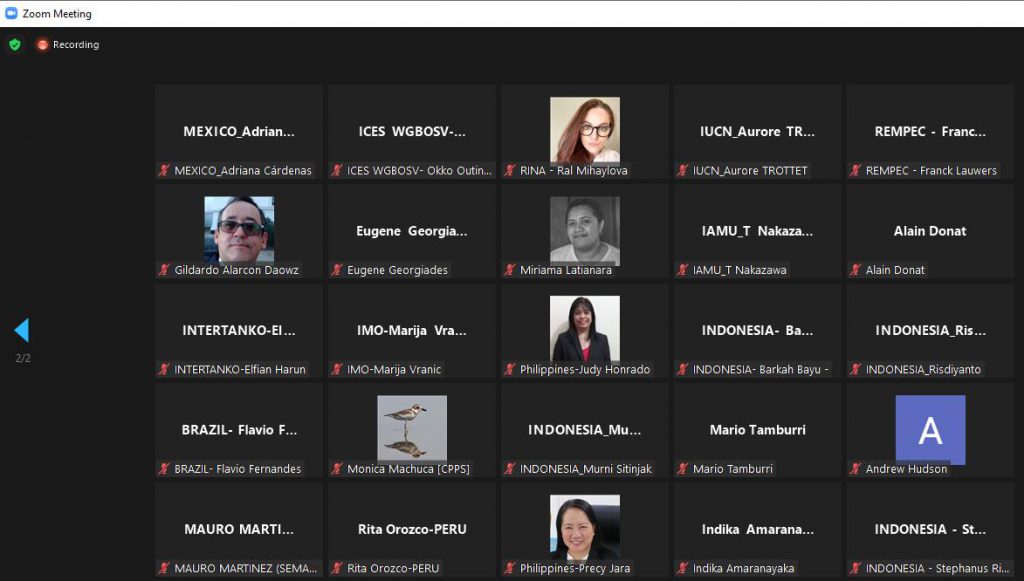The Philippine delegation, through the Maritime Industry Authority (MARINA), shared its best practices in protecting and conserving the marine environment during the 2nd Global Project Task Force (GPTF) Meeting of the GEF-UNDP-IMO GloFouling Partnerships Project held on 11 to 13 April 2022 at the International Maritime Organization (IMO) Headquarters in London, United Kingdom.
The Philippines, as one of the twelve (12) Lead Partnering Countries, was represented in person by Atty. Jean Ver P. Pia, PHD, Maritime Attaché in London, Engr. Ramon C. Hernandez, Director of the MARINA-Shipyards Regulation Service (SRS), and Ms. Dana Angela D. Fajardo, Senior Maritime Industry Development Specialist of the Overseas Shipping Service (OSS). On the other hand, Ms. Precila C. Jara, Officer-In-Charge, Director of the MARINA-OSS and Ms. Judy L. Honrado, Officer-In-Charge, Division Chief of the OSS-International Shipping Development Division (OSS-ISDD) attended virtually from Manila.
On the part of the Philippines, Engr. Hernandez presented the overall updates of the Philippine’s progress as a Lead Partnering Country (LPC) of the Project and the country’s initiatives on biofouling management. In his report, he shared that in order to ensure full and effective implementation of relevant marine environment standards in the Philippines, the MARINA crafted the National Strategic Action Plan (NSAP) entitled “Green Maritime Philippines: Protect and Conserve”.
“The plan will serve as the roadmap in the country’s implementation of the marine environment protection Conventions where biodiversity including biofouling is a part of,” Engr. Hernandez highlighted.
Further, the NSAP was adopted by the Inter-Agency Coordinating Committee to Facilitate the Ratification and Accession to and Implementation of Maritime Conventions (ICCFRAIMC) and is enrolled as Program 10 in the long-term ten-year Maritime Industry Development Plan (MIDP).
Likewise, Engr. Hernandez conveyed that the Philippines aims to mobilize a whole of nation approach cooperation in protecting, conserving and managing the marine environment and natural resources for the present and future generation. He also shared the institutionalization of the ICCFRAIMC through Executive Order No. 159 issued by President Rodrigo Duterte on 28 December 2021.
“The ICCFRAIMC is a national task force which aims to provide policy directions, technical guidance and to ensure a systematic and integrated approach to the ratification and implementation of priority IMO Instruments among concerned government agencies,” Engr. Hernandez said.
As regards to capacity development and stakeholders engagement, he shared that various trainings and workshops were conducted from 2019-2021, to provide continuous capacity building programs on marine environment protection conventions and instruments for regulators, policy makers, educators and trainers. Engr. Hernandez likewise reported the operationalization of the MARINA Training Institute (MARTI) which serves as the designated National Training Institute (NTI) for the GloFouling Partnerships Project. The IMO repeatedly commended the Philippines’ initiatives as one of the three countries who led the delivery of the training course on biofouling management through the MARTI.
Meanwhile, on research, technology and infrastructure development, Engr. Hernandez shared that the Ballast Water and Biofouling Management Research Program was awarded a grant by the Department of Science and Technology or DOST, and is being implemented through strengthened partnership with relevant agencies of the government, including University of the Philippines – Institute of Environmental Science and Meteorology (UP-IESM) as the project proponent. The major end-users are the MARINA and the Philippine Coast Guard (PCG). He likewise added that a research grant amounting to PHP12 million (USD230, 000) was approved by the DOST for the development of a prototype ballast water management technology to be used for port servicing and may serve useful for domestic shipping.
As a result of the country’s presentation, the IMO requested the country to share its best practices, specifically on its institutionalization of the ICCFRAIMC, at the next Technical Committee Meeting.
The 2nd GPTF Meeting was the first undertaking hosted by the IMO via a hybrid format. The hybrid meeting was attended by the twelve (12) Lead Partnering Countries (LPC), Regional Coordinating Organizations (RCOs) and Partner Organizations from all over the world including the Global Industry Alliance (GIA), a public-private partnership. The objective of the meeting is to review and discuss the status of the implementation of the project by the IMO and project stakeholders.
The GloFouling Partnerships Project which started in December 2018 aims to deliver a range of governance reforms at the national level through numerous capacity building activities, training workshops, demonstration sites and other opportunities for technology adoption to help address the issue of invasive aquatic species.






